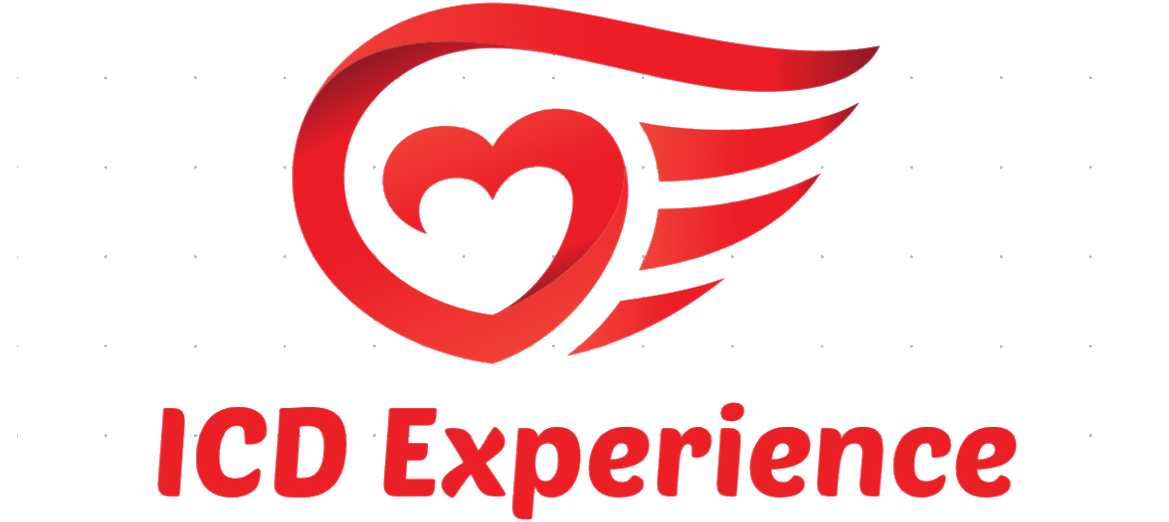For patients dealing with heart conditions, understanding ICD insurance coverage and costs is essential. Implantable Cardioverter Defibrillators (ICDs) are critical devices for managing irregular heart rhythms and preventing life-threatening cardiac events, but they come with a high price tag. Managing these expenses can be challenging, especially when ongoing maintenance costs are considered. This guide provides a comprehensive look at the costs associated with ICDs, how insurance can help offset these expenses, and practical financial assistance options to ease the burden. Knowing your options for ICD insurance coverage and costs can empower you to focus on your health and recovery.
The Basics of ICD Insurance Coverage and Costs
ICDs are sophisticated devices that play a crucial role in heart health, but they come with substantial expenses. Here, we break down the basic components of ICD insurance coverage and costs, from the device itself to the associated medical procedures.
Device Costs
The cost of an ICD device generally ranges between $25,000 and $50,000, depending on the type and complexity of the device. Single-chamber ICDs are on the lower end of the price range, while dual-chamber or biventricular ICDs, which address specific cardiac conditions, cost more. Each type of ICD comes with its own set of features and technology, impacting overall costs.
Procedure Costs
ICD implantation surgery is a complex procedure, and it adds significantly to the overall cost. Procedure costs typically range from $10,000 to $40,000, covering the surgeon’s fees, anesthesia, and use of the operating room. These expenses vary based on the facility, location, and the specific requirements of each patient’s condition. Patients are encouraged to consult their healthcare provider and insurance company for a breakdown of these costs to better understand their financial obligations.
Maintenance and Replacement Costs
ICDs require regular maintenance and, eventually, replacement. Routine follow-up appointments, typically every three to six months, ensure the device functions correctly and help monitor the ICD’s battery life. Each check-up can cost between $100 and $500, depending on the provider. The battery usually needs replacement every five to ten years, costing an additional $5,000 to $15,000. Proper planning for ICD insurance coverage and costs related to maintenance is vital for long-term financial stability.
Factors Affecting ICD Insurance
Several variables can influence the total ICD insurance coverage and costs a patient incurs, including geographic location, the terms of their insurance plan, and additional services required.
Geographic Variability
The cost of ICD implantation and maintenance can vary widely depending on location. Larger urban hospitals may have higher fees than community hospitals in rural areas. Patients looking to manage their ICD costs should consider exploring different facilities to compare prices and ensure they’re getting the best possible rate.
Insurance Negotiations
Insurance companies negotiate rates with hospitals, which can affect out-of-pocket expenses for ICD procedures. These negotiations typically result in lower rates than the standard charges, but the extent of savings will depend on your insurance provider. Patients should consult with their insurance company to confirm their ICD insurance coverage and costs in advance.
Additional Services
Additional services, such as pre-operative testing, imaging, and cardiac rehabilitation, are often part of the ICD implantation process. These services can add to the total cost. Patients are encouraged to discuss these potential charges with their healthcare team and insurance provider to avoid unexpected expenses.
Insurance Coverage Options for ICD
ICD insurance coverage varies widely based on the type of insurance, provider, and location. Here’s what patients can expect from private insurance plans, government health programs, and international coverage options.
Private Insurance Plans
Most private insurance plans cover ICD implantation, but coverage details vary. In general, private plans will cover the ICD device, implantation procedure, and follow-up care. However, co-pays, deductibles, and out-of-pocket costs will depend on the specifics of the patient’s plan. Reviewing your ICD insurance coverage in detail ensures you understand what’s covered and what might be your responsibility.
Public Health Programs
Public programs like Medicare and Medicaid provide ICD insurance coverage for eligible patients in the U.S. Medicare Part A covers inpatient hospital costs, while Part B covers outpatient services such as follow-up visits. Ontario’s OHIP (Ontario Health Insurance Plan) offers coverage for ICD implantation but may exclude elective or non-urgent services. Patients should confirm their ICD insurance coverage and costs with their provider to avoid unexpected expenses.
International Coverage
ICD insurance coverage varies internationally. In countries with universal healthcare, ICD implantation and routine follow-up care may be fully covered. However, coverage for elective services may differ, so it’s important for patients to understand their options if they are seeking ICD-related care outside their home country.
Understanding Insurance Policies
Understanding your insurance policy and its terminology can help ensure you receive full ICD insurance coverage.
Key Terminology
Familiarizing yourself with insurance terms can help you understand your ICD insurance coverage and costs:
- Deductible: The amount paid for healthcare services before insurance coverage starts.
- Co-pay: A fixed amount paid for each healthcare service.
- Out-of-pocket maximum: The maximum you’ll pay in a year for covered services.
Pre-Authorization
Some insurance companies require pre-authorization for ICD implantation or maintenance. This process confirms that the procedure is medically necessary and covered by insurance. Patients should contact their insurance provider to complete any required paperwork well before their procedure to ensure ICD insurance coverage.
Denied Claims and Appeals
If your claim for ICD insurance coverage is denied, you can file an appeal. Gathering medical records and submitting a formal appeal letter often leads to overturned denials. Staying proactive can help secure the coverage you need for your ICD.
Financial Assistance Options for ICD Insurance Coverage and Costs
For patients with significant out-of-pocket expenses, several financial assistance options are available to help with ICD insurance coverage and costs.
Financial Aid Programs
Many hospitals offer financial aid programs that can lower the total ICD insurance coverage and costs for eligible patients. Based on income and family size, these programs help reduce deductibles, co-pays, and other out-of-pocket expenses.
Patient Assistance Foundations
Nonprofit organizations such as the Patient Access Network Foundation provide grants to help cover ICD-related costs. These foundations can be a lifeline for patients who face high out-of-pocket expenses, even with insurance. Patients should check their eligibility and apply early to maximize their chances of receiving aid.
Financing Options and Payment Plans
For large medical expenses, many hospitals offer payment plans. Some healthcare financing companies also offer low-interest or interest-free loans specifically for medical procedures, providing relief for patients facing high ICD insurance coverage and costs.
Cost-Saving Tips
Use In-Network Providers
Using in-network providers is one of the simplest ways to reduce ICD insurance coverage and costs. Insurance companies cover a higher percentage of costs when patients use in-network facilities, so confirming that both your hospital and specialist are in-network can save you a significant amount.
Negotiate Bills
Many patients aren’t aware that medical bills are negotiable. Contacting your hospital or clinic’s billing department to discuss possible discounts or payment adjustments can reduce ICD-related expenses, particularly if you’re paying out-of-pocket.
Compare Facilities
Comparing ICD insurance coverage and costs across different facilities may save thousands. Many hospitals now provide cost estimates upon request, allowing patients to compare bundled pricing that includes pre-op and post-op care.
Long-Term Financial Planning for ICD Patients
Long-term financial planning is essential for ICD patients who anticipate future costs related to maintenance, battery replacements, and check-ups.
Budget for Maintenance
Setting aside funds annually for ICD-related care ensures you’re prepared for routine check-ups and eventual battery replacements. Health Savings Accounts (HSAs) and Flexible Spending Accounts (FSAs) are excellent ways to save pre-tax dollars for healthcare expenses, making them highly effective for managing ICD insurance coverage and costs.
Use Health Savings Accounts (HSAs) and Flexible Spending Accounts (FSAs)
For patients with high-deductible plans, HSAs offer a tax-advantaged way to save for long-term ICD insurance coverage and costs. Unlike FSAs, HSA funds roll over year to year, making them ideal for ongoing ICD expenses.
Consider Disability Insurance
If an ICD affects a patient’s ability to work, disability insurance can provide essential income support. Long-term disability insurance is a beneficial option for ICD patients who may need financial stability during periods of recovery or health challenges.
Conclusion
Understanding ICD insurance coverage and costs is critical for anyone with an ICD or considering one. By reviewing your insurance details, exploring financial assistance options, and considering cost-saving strategies, you can manage these expenses more effectively and focus on your health. Taking a proactive approach to understanding ICD insurance coverage and costs can make a significant difference, offering you peace of mind as you prioritize your well-being.
For more in-depth insights, check out my book “Understanding ICD Implants: A Comprehensive Guide.”













5 Comments
ok
Great article on ICD insurance! It’s super helpful for those dealing with heart conditions. One thing I’ve always wondered—how do you find out if your insurance covers all these costs? It seems like there’s a lot of variation depending on where you live and your specific plan. It’d be awesome to know where to start digging for that info.
Thanks for sharing the insights!